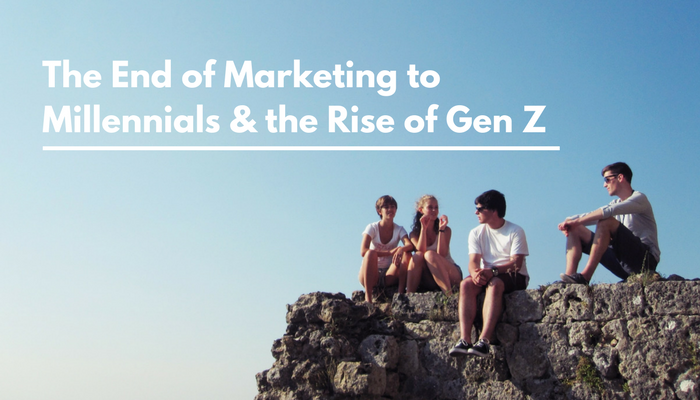Multifamily Blogs
Student Housing - The End of Marketing to Millennials & the Rise of Gen Z
Student Housing - The End of Marketing to Millennials & the Rise of Gen Z

The term millennial doesn’t have a clear-cut definition but is ever-present when it comes to apartment marketing. Commonly, millennial is often used as a catch-all phrase referring to nearly any young renter that falls beneath the age of 30.
But what is the actual period when millennials were born? Chances are, if you were to try to pin down the exact time frame for the millennial generation, you’d encounter some conflicting answers.
· Born between 1977 to 1994 – Metlife
· Born between 1980 to 2000 – Time Magazine
· Born between 1982 to 2004 – Demographers William Straus and Neil Howe
· Born between 1983 to 2000 – US Public Interest Research Group
By and large, the consensus is that the last millennials were born around the year 2000, which would currently make the youngest millennials 17 years old; which is around the age most students graduate from high school and go off to college or university. This group is what we classify as the last millennial class. The proactive student-housing marketer knows that this is the end of the road for marketing to the millennial generation - but what’s next?
Move aside Millennials – get ready for Generation Z.
While the last class of millennials could potentially still have another 4 to 5 years in student housing, the focus will largely be shifted to Generation Z now. Much like the millennial generation, there isn’t a defined date range for Gen Z; but most often quoted as between 2001 to 2015. Using this timeframe would mean the eldest group of Gen Z would be heading off to college or university in the next couple of years.
We previously discussed what Generation Z renters will want in student housing and their preferences, but what’s recommended for marketing to them?
- Disposable Content on Social Media – Snapchat, Periscope & More: One emerging trend with Generation Z is the increased interest in social media platforms with disposable content. Disposable content is non-permanent material shared through platforms like Snapchat, Periscope & Instagram Stories. Some early adopters have already started to leverage Snapchat in student housing marketing, like Varsity Properties. Disposable content enables student housing marketers to quickly deliver content and promotional messages, without dedicating much time or resources. Traditional marketing often involves more focus and workload.
- Increasing Focus on Mobile-Friendly Marketing: Generation Z has shown an inclination to primarily access the web through mobile devices and this trend is growing fast. For this reason, marketers will need to tailor their messages and content to be easily digested on mobile devices. Property Management Insider stresses the importance of mobile usage in a recent article stating, “Generation Z is very mobile savvy… you’re having over 75% of people seeing websites on their mobile…they won’t even go into the larger sites.”
- Marketing Online Tools & Services for Renting: While the amenity race may be nearing its end, one thing that Gen Z students are showing a keen interest in is new and emerging technologies to simplify their renting experience. The National Apartment Association previously discussed the need to move many rental processes online, making them streamlined and more convenient for Gen Z. A few examples of this would include how Campus Apartments partnered with RoomSync to offer improved roommate matching for its residents or how some properties have implemented reward-based online rent payment services like RentMoola.
- Better Visual & Video Content for Digital Marketing: Perhaps the most easily consumed content for Gen Z comes in the form of high-quality visual content; especially videos. According to Brightdoor, Gen Z’s visit YouTube more than any other site. Having video content such as interactive tours & promotional videos is particularly advantageous for student housing. Plus some social platforms like Facebook have shown a preference in their algorithms to video content.
- Leveraging Online Reviews & Resident Testimonials: Gen Z renters are very likely to seek out online reviews or testimonials from current residents on social media when deciding on accommodations. Matt Sadler from EdR emphasized the need for online reputation management and how social media has given a voice to renters to share their experiences. Encouraging positive reviews and testimonials online can be a powerful marketing tool.
Student housing marketers have come to understand the needs and tendencies of Millennials; but now it’s time to pay attention to the next generation, Gen Z.

